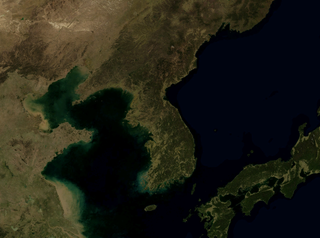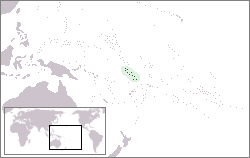
The United Nations Security Council (UNSC) is one of the six principal organs of the United Nations (UN) and is charged with ensuring international peace and security, recommending the admission of new UN members to the General Assembly, and approving any changes to the UN Charter. Its powers as outlined in the United Nations Charter include establishing peacekeeping operations, enacting international sanctions, and authorizing military action. The UNSC is the only UN body with authority to issue resolutions that are binding on member states.

The member states of the United Nations comprise 193 sovereign states. The United Nations (UN) is the world's largest intergovernmental organization. All members have equal representation in the UN General Assembly.
A United Nations General Assembly resolution is a decision or declaration voted on by all member states of the United Nations in the General Assembly.
China is one of the members of the United Nations and is one of five permanent members of its Security Council. One of the victorious Allies of World War II, the Republic of China (ROC) joined the UN as one of its founding member countries in 1945. The subsequent resumption of the Chinese Civil War between the government of Republic of China and the rebel forces of the Chinese Communist Party, led to the latter's victory on the mainland and the establishment of the People's Republic of China (PRC) in 1949. Nearly all of mainland China was soon under its control and the ROC government retreated to the island of Taiwan.
The United States is a charter member of the United Nations and one of five permanent members of the UN Security Council.

The Soviet Union was a charter member of the United Nations and one of five permanent members of the Security Council. Following the dissolution of the Soviet Union in 1991, its UN seat was transferred to the Russian Federation, the continuator state of the USSR.

The G4 nations, comprising Brazil, Germany, India, and Japan, are four countries which support each other's bids for permanent seats on the United Nations Security Council. Unlike the G7, where the common denominator is the economy and long-term political motives, the G4's primary aim is the permanent member seats on the Security Council. Each of these four countries have figured among the elected non-permanent members of the council since the UN's establishment. Their economic, political and military influence has grown significantly in the last decades, reaching a scope comparable to the permanent members (P5). However, the G4's bids are often opposed by the Uniting for Consensus movement, and particularly their economic competitors or political rivals.

The Russian Federation continued to use the Soviet Union's seat, including its permanent membership on the Security Council in the United Nations after the 1991 dissolution of the Soviet Union, which originally co-founded the UN in 1945. The continuity was supported by the USSR's former members and was not objected to by the UN membership; Russia accounted for more than 75% of the Soviet Union's economy, the majority of its population and 75% of its land mass; in addition, the history of the Soviet Union began in Russia with the October Revolution in 1917 in Petrograd. If there was to be a continuator to the Soviet seat on the Security Council among the former Soviet republics, these factors made Russia seem a logical choice.

The United Nations Security Council veto power is the power of the five permanent members of the UN Security Council to veto any decision other than a "procedural" decision.
United Nations General Assembly (UNGA) resolution 377 A, the "Uniting for Peace" resolution, states that in any cases where the Security Council, because of a lack of unanimity among its five permanent members (P5), fails to act as required to maintain international security and peace, the General Assembly shall consider the matter immediately and may issue appropriate recommendations to UN members for collective measures, including the use of armed force when necessary, in order to maintain or restore international security and peace. It was adopted 3 November 1950, after fourteen days of Assembly discussions, by a vote of 52 to 5, with 2 abstentions. The resolution was designed to provide the UN with an alternative avenue for action when at least one P5 member uses its veto to obstruct the Security Council from carrying out its functions mandated by the UN Charter.
The United Nations General Assembly Resolution 505 is titled Threats to the political independence and territorial integrity of China and to the peace of the Far East, resulting from Soviet violations of the Sino-Soviet Treaty of Friendship and Alliance of August 14, 1945 and from Soviet violations of the Charter of the United Nations. The UN General Assembly adopted this resolution on 1 February 1952 during its sixth session after the Republic of China complained to the United Nations against the Soviet Union.

Since its creation in 1945, the United Nations Security Council has undergone one reform, increasing its membership from 4 to 10 non-permanent members. Nonetheless, this first and only reform has not left the global community satisfied, which has since then relentlessly called for a more all-encompassing reform. Reform of the Security Council encompasses five key issues: categories of membership, the question of the veto held by the five permanent members, regional representation, the size of an enlarged Council and its working methods, and the Security Council-General Assembly relationship. Despite a common agreement amongst member states, regional groups and academics on the need for reform, its feasibility is compromised by the difficulty to find an approach that would please all parties. Any reform of the Security Council would require the agreement of at least two-thirds of United Nations member states in a vote in the General Assembly and must be ratified by two-thirds of Member States. All of the permanent members (P5) of the UNSC, which hold veto rights, must also agree.
The United Kingdom is a founding member of the United Nations and one of five permanent members of the UN Security Council.

France has been a member of the United Nations (UN) since its foundation in 1945 and is one of the five countries, alongside China, Russia, the United Kingdom, and the United States, that holds a permanent seat on the United Nations Security Council (UNSC), which is responsible for maintaining international peace and security.

Resolution 82 was adopted by the United Nations Security Council (UNSC) on 25 June 1950. It condemned the "armed attack on the Republic of Korea by forces from North Korea", while calling for "the immediate cessation of hostilities" and for "the authorities in North Korea to withdraw forthwith their armed forces to the 38th parallel". The measure was adopted with 9 voting for, none opposed, and one abstention by Yugoslavia. The Soviet Union was absent, as it was boycotting the UN at the time for its recognition of the Republic of China as China's representative to the organization.

United Nations Security Council resolution 1290 was adopted on 17 February 2000. Resolution 1290 examined Tuvalu's application to become the 189th member of the United Nations (UN). Tuvalu achieved independence in 1978 after over eighty years of British colonial rule. The country had struggled economically, and it took the 2000 sale of Tuvalu's Internet country code top-level domain .tv for the nation to be able to afford UN membership. Resolution 1290 was adopted unopposed, although China abstained due to concerns over Tuvalu's relationship with Taiwan.

The permanent members of the United Nations Security Council are the five sovereign states to whom the UN Charter of 1945 grants a permanent seat on the UN Security Council: China, France, Russia, United Kingdom, and United States.

The Republic of Korea and the Democratic People's Republic of Korea were simultaneously admitted to the United Nations (UN) in 1991. On 8 August 1991, the UN Security Council passed Resolution 702, recommending both states to the General Assembly for membership. On 17 September 1991, the General Assembly admitted both countries under Resolution 46/1.

United Nations General Assembly Resolution 68/262 was adopted on 27 March 2014 by the sixty-eighth session of the United Nations General Assembly in response to the Russian annexation of Crimea and entitled "territorial integrity of Ukraine". The nonbinding resolution, which was supported by 100 United Nations member states, affirmed the General Assembly's commitment to the territorial integrity of Ukraine within its internationally recognized borders and underscored the invalidity of the 2014 Crimean referendum. Eleven nations voted against the resolution, while 58 abstained, and a further 24 states were absent when the vote took place.











